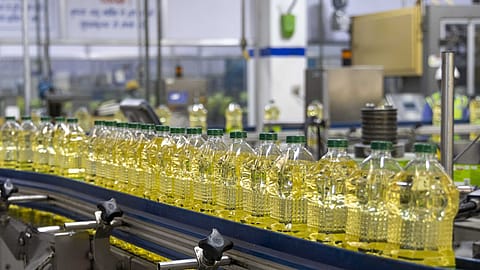From Bikaji to Nestlé: How India's edible oil duty cut will lift snack and FMCG margins
India, which imports over half of its edible oil requirements, has been grappling with elevated cooking oil prices that feed directly into retail inflation and impact input costs for packaged food manufacturers.

In a move aimed at reining in food inflation and supporting domestic processors, the government has slashed the basic customs duty on three major imported edible oils—crude palm oil, crude soybean oil, and crude sunflower oil—by 10%. The revised rates came into effect on May 30, according to a recent government notification.
Abneesh Roy, executive director at Nuvama Institutional Equities, called the move long overdue. “We had been expecting this duty cut in palm oil to come through by March but the delay surprised us. The STREET had almost stopped expecting this to happen,” he said. “It’s good to see this finally happen.”
India, which imports over half of its edible oil requirements, has been grappling with elevated cooking oil prices that feed directly into retail inflation and impact input costs for packaged food manufacturers. The government’s intervention is seen as a dual-purpose step—to protect consumers and ease raw material costs for companies dependent on edible oils.
Roy believes the duty cut will immediately cool monthly consumer inflation and significantly reduce input costs for food companies, particularly those in the snacks and packaged foods segment. “Palm oil prices had already corrected sharply in dollar terms from their peak. With this duty cut, companies now stand to gain from a double benefit, starting from the second quarter of FY26,” he added.
Snacks manufacturers such as Bikaji Foods, which use palm oil for frying, are expected to be among the biggest beneficiaries. According to Roy, palm oil constitutes nearly 25-30% of raw material costs for such players. “Bikaji, Britannia, Nestlé, and Gopal Snacks are likely to see meaningful margin gains,” he said, reiterating a ‘Buy’ rating on these stocks.
Britannia and Nestlé, with broad product portfolios dependent on edible oil inputs, also stand to benefit. ITC Foods could see gains as well, although Roy cautioned that investor focus will remain “watchful” on the impact of any further stake sale by British American Tobacco (BAT) in ITC, which he termed a “supply overhang”.
Beyond packaged food, the impact could trickle into broader FMCG players such as Hindustan Unilever (HUL) and Godrej Consumer Products (GCPL), if prices of palm oil derivatives like Palm Fatty Acid Distillate (PFAD) also ease.
Recommended Stories
Agri-processing firms such as Adani Wilmar may also see some benefits, although the extent will depend on inventory positions and potential valuation losses on existing stock.
With inflationary pressures still top of mind, the move comes at a critical time. The duty cut is likely to provide some breathing space for both consumers and corporates, especially as food inflation continues to shape household budgets and corporate earnings alike.
For now, the Street is watching how this policy change filters through balance sheets in the quarters ahead—but the ripple effect has already begun.